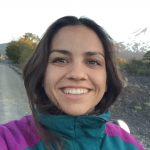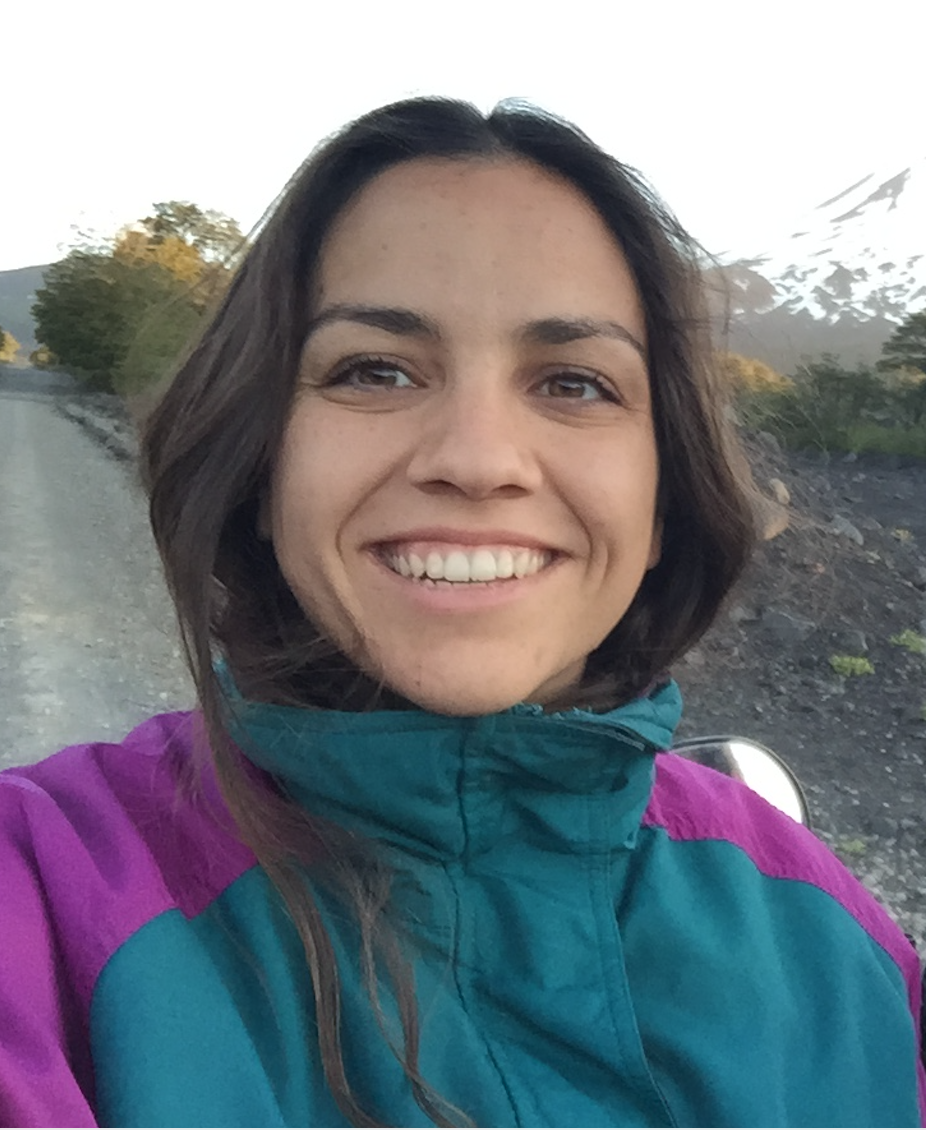Elena Perdomo: “When my computations work, I feel like a genius!” | A day in the life blog

April 12, 2019 by Bruno Martin
“When my computations work, I feel like a genius!”
Blog: A day in the life of a physicist
Meet Elena Perdomo Méndez, 25-year-old Spanish researcher at the University of Southampton (UK)

What is your field of study?
I study Particle Physics. I try to answer questions that are still unresolved by the Standard Model of Physics: How do neutrinos acquire their mass? Why are there three families, or generations, of particles? Why do the electron and proton have equal but opposite electric charge? What is dark matter? To address these (and other) questions, I write new mathematical models based on Supersymmetry, Grand Unification, Models with Extra Dimensions and many other theories.
How do you put those new models to the test?
In our field, the process of testing hypotheses or new models can be quite slow, since we cannot make our own experiments in the University lab. We mostly rely on the Large Hadron Collider (LHC), which is the world’s largest and most powerful particle accelerator.
When we build a new model, we need to fit the current observations but also make new predictions that can be tested in the near future. Usually, this leads to the construction of new experiments, which often implies the development of new technologies that can later be applied to other fields of research and industry. The applications range from medical diagnosis and therapy to computer chip manufacture.
What is it like to do a PhD?
Doing a PhD can be satisfying and stressful. When you are doing computations, there is usually a slim chance that they will end up working, so I often feel I lack the right skills to be in this field. Of course, when they do work, I feel like a genius!
There are some great things about being a PhD candidate. For example, I have the freedom to organise my time: I personally don’t have strict office timetables, holiday allowance or work hours. As long as I make progress on my projects, my supervisor, my collaborators and I are happy.
You also get the opportunity to travel and to meet a lot of new people, attending conferences and visiting other universities for collaborations. Apart from discussing physics with people that can contribute to increase your knowledge, you end up having a lot of friends around the world, which is amazing.
How sociable is your work?
I have regular meetings with my supervisor. Usually, we work in collaboration with other postdocs and professors, so here I learn a lot from them and I get the opportunity to voice my ideas and results. We also have seminars every week, which help understand what other people are working on. Even if they are in the same field, there are many different approaches (models, hypotheses) to tackle a problem, so attending the seminars is a good way to stay updated with the most recent developments.
The other way to interact with fellow scientists is attending conferences or visiting other institutions. Being part of this network, Elusives, has allowed me to spend months in other universities, where my work and interaction with other people has led to new ideas and finally, article publications.
A typical day of science:
Morning
I enjoy my breakfast at home and then I go to the office at around 9am. The first thing I do is open my computer to check my Facebook account and the arXiv server, where new physics papers are released daily. Then I resume the computations I didn’t finish the previous day. My routine has recently changed since I just started writing my thesis. Now, I divide my time between finishing some current projects and reading a lot of scientific literature to write the introduction to my thesis.
Lunch
I usually bring my own lunch from home and eat in the seminar room with other PhD students.
Afternoon
I have meetings with my supervisor in the afternoons, usually twice per week. We discuss the progress of our projects together with other postdocs and we also discuss developing ideas. On Tuesdays, we have the internal seminars from PhDs, postdocs and academics from the Theoretical Physics department. On Fridays, we have the external seminars: usually a professor from outside the University of Southampton is invited to give a talk.
Evening
After work, I go to the gym where I take training classes. Then, I usually go home to cook dinner, and lunch for the next day. Before going to bed, I try to read or talk with friends and family. On Fridays, the other PhD students and I head to the pub at University.


